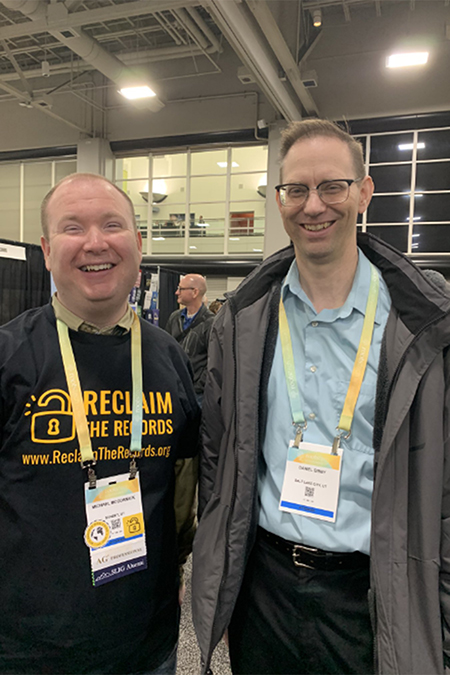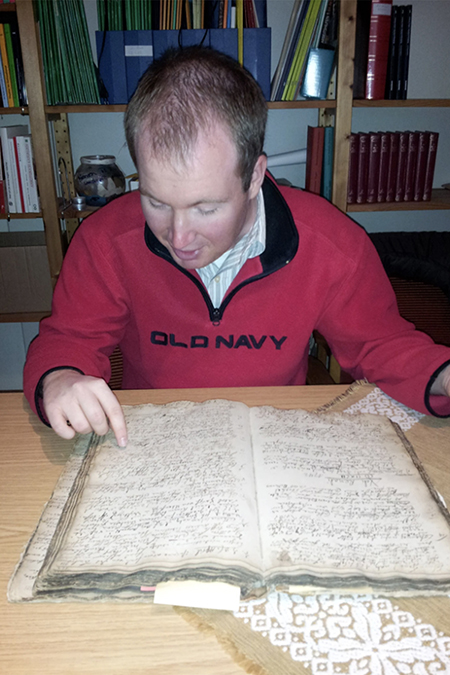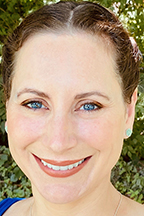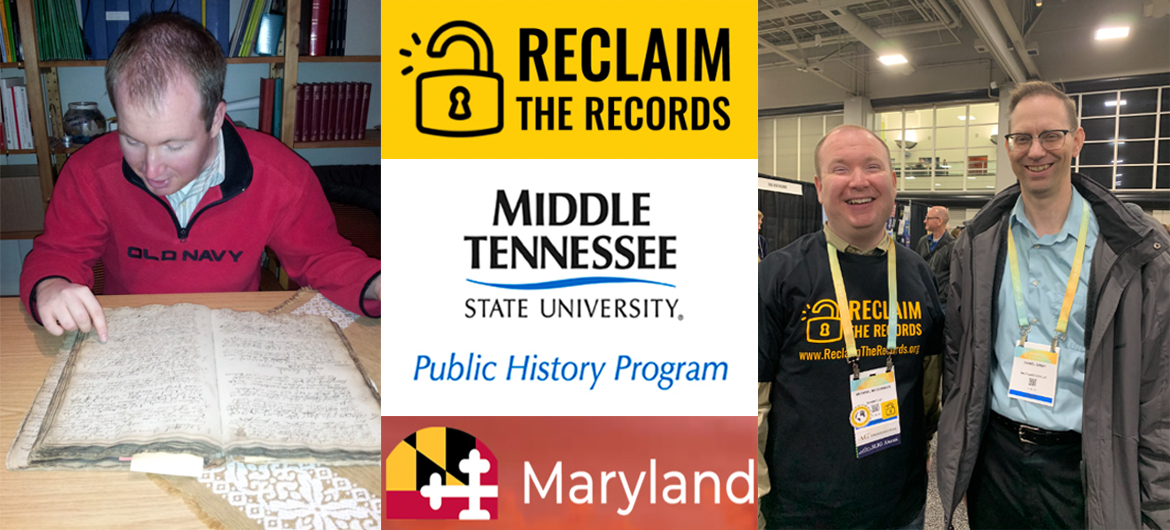Michael McCormick, a candidate in Middle Tennessee State University’s Public History Ph.D. program, took a passion for researching his family origins to a career of multiple, major genealogy projects and most recently an internship that helped release over 100 years of vital records in Maryland.
“There are legal and health reasons why a person should have rights to research vital records and family tree data, to be able to build their history,” McCormick said. “(Releasing records) makes researching multiple individuals and families for broader projects in families, or history topics, much more doable.”

McCormick worked with nonprofit Reclaim the Records — a group of advocates from the genealogy field and beyond working to identify important genealogical record sets that are not online or easily accessible to the public — to make an estimated 5 million records such as birth, marriage and death certificates free and accessible to the public, one of the organization’s largest acquisitions to date, according to its website.
McCormick’s yearlong placement fulfilled the practical internship requirement of the doctoral program.
“Just being required to do a residency at all put me in a position where something I was already passionate about, but never felt I could justify enough time and resources toward, was now able to become a project that I could do in fulfillment of one of my academic requirements,” said the Idaville, Pennsylvania, native. “(It) put me in a position to help me advance my interests and career by getting myself out there more and interacting with organizations in the genealogical space that are important to me.”
Kelly Kolar, associate history professor and director of archival management in the graduate Public History program, said McCormick’s success has been great for the program.
“I was delighted to see his work celebrated in The Washington Post, and I’m proud of his work to make public records more accessible,” Kolar said. “I am excited about the dissertation Michael will produce and how his scholarship and work will contribute to the field.”

McCormick had already put years into building his experience through a genealogical certification, working at genealogical research firms, working as an adjunct professor and more when he decided on MTSU to pursue his doctorate in history studies after researching history programs across the country.
“MTSU is pretty much mind blowing in its ability to fund all doctoral students and to serve as many doctoral students as it has over the years — all sorts of historians, whether their primary interest is related to archives, or to museums, or to historic property preservation, or to some seemingly tangential field that is not even directly treated in the curriculum,” said McCormick, who has been able to complete his degree as a remote student out of Sunset, Utah, and earned four years of funding. “Dr. Kelly Kolar was willing to take a call with me before I even got admitted without even knowing me and was supportive of my research interests from the beginning.”
Kolar said the yearlong residency requirement highlights the program’s value of both theory and hands-on experience.
“The residency aspect of the curriculum allows the student to apply scholarship and theory to professional practice, distinguishing it from a traditional history Ph.D.,” Kolar said. “Fieldwork is also important to the degree because it trains students to become practicing public historians.”

Kolar said they recruit a diverse group of Ph.D. candidates, like McCormick, because history is an interdisciplinary field. MTSU’s nationally recognized history faculty also have backgrounds in everything from archeology, folklore and more, and a recent program graduate, Brian Odom, now works as the chief historian for NASA.
“History is about working with the public, so we need people of different backgrounds to serve our communities best,” Kolar said. “Genealogists and family historians (like McCormick) are a large portion of archival users. I am excited about Michael’s work combining his previous academic training and experience in genealogy with the Public History education and training he is receiving in our program.”
Learn more about the Ph.D. in Public History program at https://www.mtsu.edu/programs/public-history-phd.
— Stephanie Wagner (Stephanie.Wagner@mtsu.edu)


COMMENTS ARE OFF THIS POST